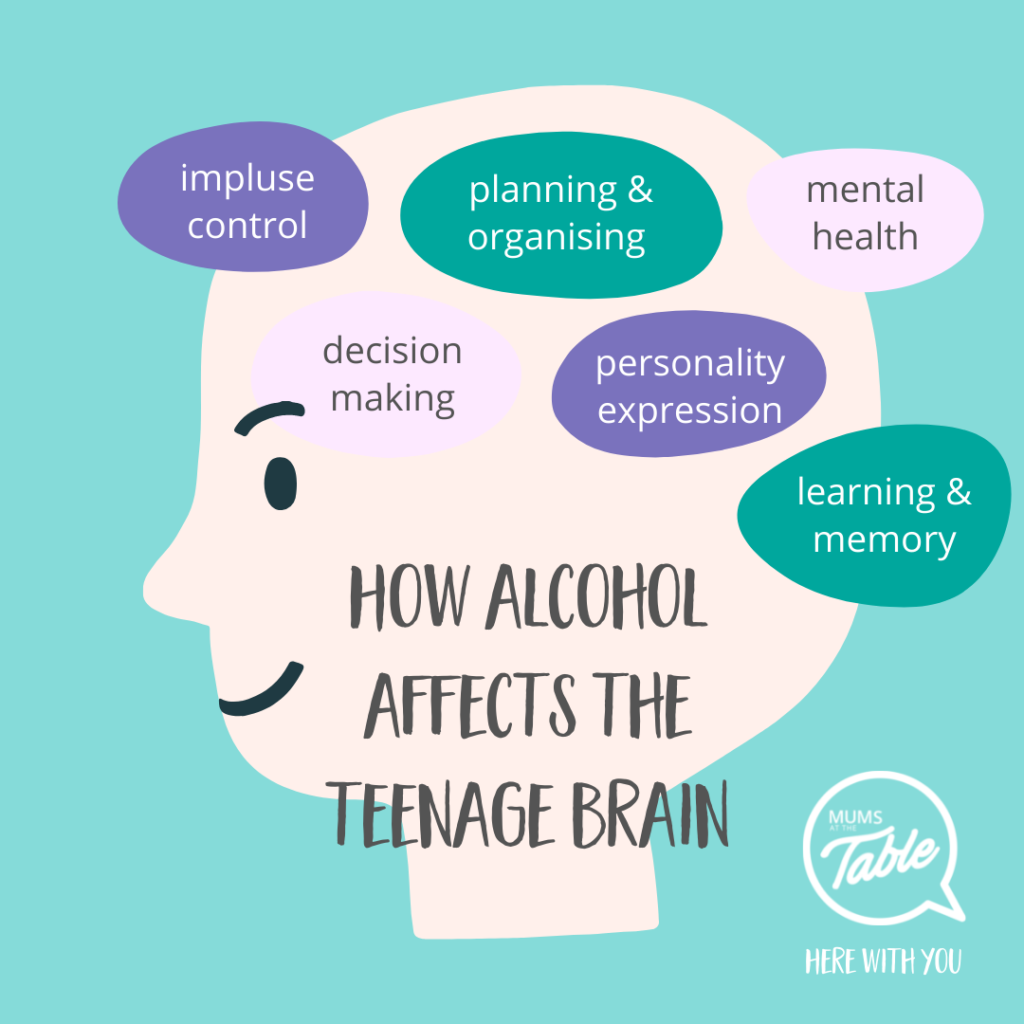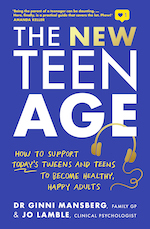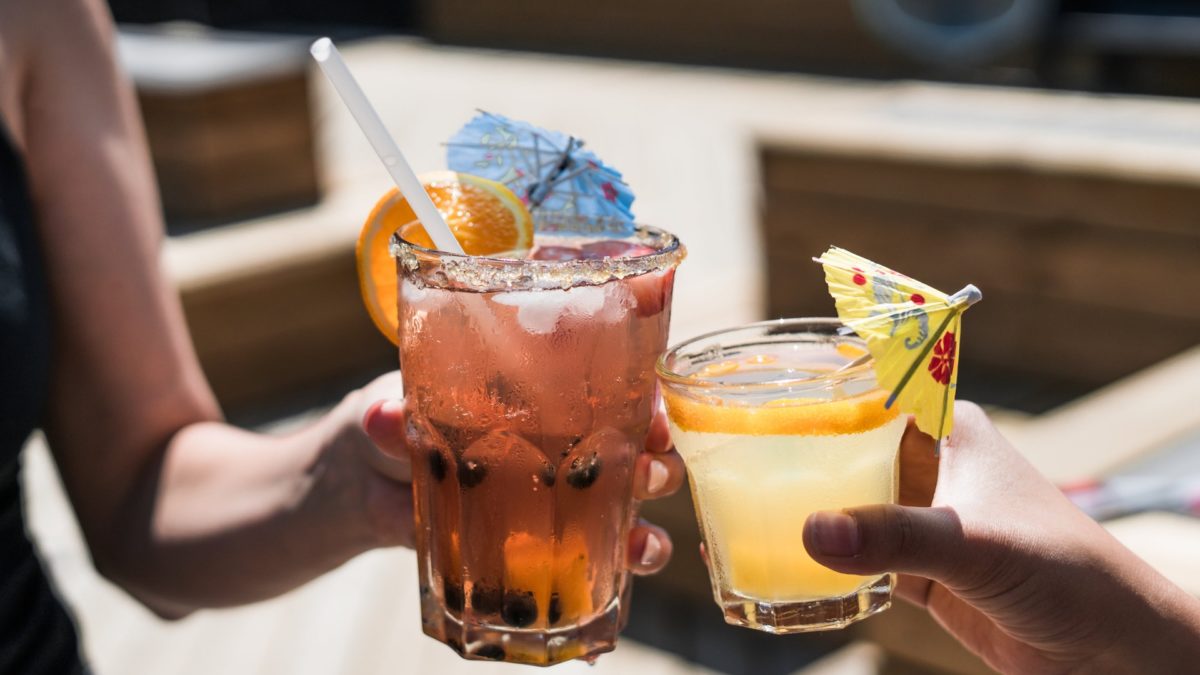Under the influence of a large amount of alcohol, teenagers make bad decisions. Sexual violence is a big one.
The good news first: more teenagers—at least in Australia—are abstaining from alcohol than teens did 20 years ago. That could be to do with the country’s changing ethnic and cultural mix as our diversity increases. And fewer teens are getting regularly hammered on alcohol than they did 20 years ago. Now the bad news within the good news: there is a hard-core group that is still drinking way too much. And, compared to 20 years ago, this small group of problem drinkers are starting earlier and drinking more than the hard-core mob did 20 years ago.
From Australian research we know that initially boys and girls drink about the same amount but, as the teens get older, boys start out-drinking the girls pretty significantly.
How does alcohol affect a teenager?

Under the influence of a large amount of alcohol, teenagers make bad decisions. Sexual violence is a big one. At least a quarter of American women have been the victims of sexual assault, including rape. And half of those cases involve alcohol consumption by the perpetrator, victim or both. As a parent, this is possibly among your worst nightmares.
Under the influence of alcohol, our teens are more likely to have casual sex. According to research by the Kaiser Family Foundation, young people are more likely to have consensual sex after drinking, but also say that they “do more” sexually after drinking than they had planned. None of that may be a problem, but it raises the risks of acquiring an STI or an unplanned pregnancy if they don’t use a condom. Which they do less often when alcohol is involved.
Read: Raising girls to understand consent
When they’re drunk, teenagers are more likely to perpetrate and be the victims of youth violence. Being drunk reduces their self-control, impulse control and the ability to assess risks while simultaneously heightening emotions. Plus they’re off their game in terms of reading a situation and responding to it, which makes some drinkers easy targets for perpetrators. Drunk teens are also more likely to be vandals and damage property.
Young drunks are more likely to have a car crash, even in countries with heavy drink-driving laws. The crash risk from driving after drinking is higher for young people than for adults at all blood alcohol content levels—partly because they’re less experienced drivers.
They’re also more prone to accidents, such as burning and falling incidents, as well as drowning. In fact, Australian research has found that among risky drinkers aged between 14 and 19, 83 per cent had been injured as a result of their drinking in the past 12 months and seven per cent attended an emergency department for an alcohol-related injury.
Being drunk and on a screen is a bad combination. People who post while drunk post more inappropriate content. From nudie pics, to spilling a friend’s secrets, to publicising their own drunkenness, to trolling. It’s never wise!
How does alcohol affect the teenage body?

Long-term consequences of teenage drinking are pretty dreadful, too. While “kids will be kids” and doing risky things is definitely something teenagers do, and many, many of these heavy-drinking teens will absolutely “mature out” of heavy alcohol use over time, that’s not always the case. High school “substance use” is one of the strongest predictors of substance abuse in adulthood. In fact, risky drinking rates in twelfth grade are pretty good predictors of alcohol use and dependence at 35 years of age and dropping out of college in America.
Alcohol causes brain damage. Long-term alcoholics have a well-documented range of brain impacts. But even so-called binge drinking increases damage to brain cells, especially in the frontal and prefrontal cortex (critical for cognitive skills, what we call “executive function”, which is planning and organising, personality expression, decision-making and social behaviour) and the hippocampus (central to learning and memory). Because the adolescent brain is growing rapidly, it is especially prone to the damage done by alcohol, which can have major long-term effects. The teenage brain seems to be particularly prone to frontal cortical damage, especially with the presence of certain genetic factors. And the effects seem to be more pronounced in girls than boys so it might be that the girls’ brains are more vulnerable to alcohol damage.
Repeated drinking has also been shown in studies to lead to impulsive behaviour and anxiety that further drives repeated cycles of risky drinking.
Plus people who imbibe until they pass out might have more than a hangover to contend with. In a study of more than 130,000 people across the UK, Europe and Scandinavia, loss of consciousness from excessive alcohol doubled the risk of subsequently developing dementia, regardless of overall alcohol consumption.
Should I let my 14-year-old drink alcohol?
Some people believe the best way to regulate their teen’s drinking behaviour is to offer them alcohol at home, under their parents’ watchful eyes. Resident psychologist Collett Smart shares her thoughts on this matter.
Top tips for preventing risky drinking by your teen
Knowing that young people are at greater risk of harm from alcohol, here are five top tips to prevent risky drinking by your teen.
1. Delay their first drink
Research has found that if someone starts drinking under the age of 14 (even just “a sip”) they are over four times more likely to end up with alcoholism than those who started drinking after 20 years of age. So, if you’re open to your child having a sip of your wine, later is better. Personally, this was something we did totally wrong as parents of teens a decade ago. We did allow our kids a small glass of wine here and there with dinner. Like many of my fellow parents, I thought I would protect them from harmful drinking by role modelling responsible drinking at home over dinner. Wrong!
Trust me, I understand most parents are terrified that their child’s first experience of alcohol will be at a party or in a park late on a Saturday night. I certainly was when my kids were that age. But I can promise you, research is conclusive that serving it up in the safety of your home doesn’t inoculate them from overdoing it in the park with a bottle of Smirnoff. Quite the opposite, in fact.
2. Don’t get hammered yourself
Results from a 2017 UK study into the impact of parental drinking on children aged 10–17 found that half the adolescents said they’d seen a parent (who’s not an alcoholic) get drunk and most registered it as being at least somewhat problematic. This is a bit heartbreaking; when the researchers asked the teens what happened when their parents drank, they said they got less attention (12 per cent), were put to bed later than usual (11 per cent), and that their parents argued more (eight per cent) and behaved in a more unpredictable way (eight per cent).
3. It’s okay to have rules
Whether or not your own drinking habits could do with a tweak, it is time to establish (or re-establish) house rules. According to the National Drug and Alcohol Research Centre, there are three factors that dramatically reduce the risk of harmful drinking by teens: stricter parental monitoring, specific alcohol-related house rules, and having fewer peers who drink or smoke.
House rules need to be clear and specific, with consequences clearly laid out ahead of time. The reasons for the rules need to be made clear. For example, “We don’t do anything illegal in the house; therefore, there are no drugs in the house”; “I care about your safety so you need to text me to tell me you’re okay at 11 o’clock”. The consequences for breaching the rules don’t need to be ridiculous. You need to be able to carry them through or risk your credibility.
Rules are about the wellbeing of everyone in the family, not a power or control play. They are created with the same love, compassion, competence and confidence as everything else you do as a parent.
4. Prioritise their sleep
Sleep-deprived teens are more prone to poor decisions and risky behaviour of all sorts, from risky sex to risky drugs and alcohol.
Read: Raising teenagers? 4 common challenges parents face and how to conquer them
5. Manage their money
Too many kids have ridiculous amounts of money today. They seem to be paid more for their part-time jobs, pay no rent or board, and have enough money to do a lot of online shopping, buy alcohol and drugs, and gamble.
Effects of alcohol that might matter to your kids
Is your teen an athlete? Alcohol can affect sporting performance, with negative impacts on their motor skills, hydration, aerobic performance and the recovery process. Chronic alcohol use can have negative impacts on body composition and can cause nutritional deficiencies and depressed immune function, resulting in increased risk of injury and delayed healing.
Are they into their appearance? Lots of girls stick to neat vodka to avoid excess calories. Forget it. In the enormous US National Longitudinal Study of Adolescent to Adult Health, heavy episodic drinking was associated with 41 per cent higher risk of transitioning from normal weight to overweight, 36 per cent higher risk of transitioning from overweight to obese and 35 per cent higher risk of maintaining obesity. Why? It’s not just the kilojoules from the drinks: I used to see my gym junkie, health warrior oldest son, Sam, get stuck into sausage rolls and chips when he was on the beers. Research shows that alcohol temporarily increases the brain’s “rewarding value” of food and decreases the decision-making processes that would normally stop them eating rubbish.

Text from The New Teen Age by Dr Ginni Mansberg and Jo Lamble. Murdoch Books RRP $32.99
How helpful was this article?
Click on a star to rate it!
0 / 5. 0
Be the first to rate this post!
Related posts
Subscribe
Receive personalised articles from experts and wellness inspiration weekly!

